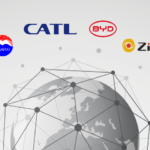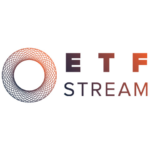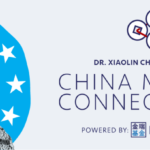As Global Regulation Rises, ESG Could Help Investors Filter Out Risk, Especially in China

US Senators questioned the CEO of Instagram this month on the negative impacts the apps’ algorithms may be having on children and teenagers. A broad consensus from the hearing was stricter government oversight of social-media apps is necessary in the US, yet concrete regulation has yet to materialize. Contrast that with China, which completed a comprehensive regulatory overhaul in 2021 under the banner of “common prosperity,” where the government is proactively aligning corporate growth with social responsibility. Companies that have established employee benefits, environmental protection, and positive social impact programs could benefit from the new regulatory framework.
These new regulations came at a cost to profits in China’s internet sector. On September 2nd, Alibaba announced they will invest $15.5 billion USD into a “common prosperity” fund by 2025.1 Likewise, Tencent pledged $7.7 billion toward common prosperity.2 This money will go toward increasing subsidies for small and medium-sized enterprises and toward improving wages, insurance, and protection for gig economy workers such as couriers and ride-hailing drivers.
Meanwhile, the European Union has also passed comprehensive regulations to address ESG issues. In 2018 the EU implemented its General Data Protection Regulation (GDPR), a sweeping law aimed at improving data protection and privacy. In July 2021, the EU put forth its Fit for 55: Proposal for reaching its legally binding target to cut emissions to 55% below 1990 levels by 2030. 3
One intriguing trend this wave of global internet and environmental regulation highlights is the direct relationship between how proactive a country is on regulating societal issues and the effectiveness of ESG as a potential performance booster.
We looked at the performance of MSCI standard and ESG leaders indexes for the USA, Europe, and China. In the less-regulated US market, we found ESG does not have a significant impact on performance over the past 10 years, accounting for a cumulative outperformance of 4.3%. In Europe, the opposite was true; ESG provided a consistent performance boost across the period, accounting for a total outperformance of 23.9%. In China, however, the effect was the most pronounced. Since the inception of the China ESG index on July 13, 2013, it provided a cumulative outperformance of 102.1%.4



In fact, a comparison of the standard and ESG indexes on a yearly basis shows that China ESG had the most consistent outperformance. The China ESG index beat the broad index in seven of the eight years across its full performance history. Whereas in the US, the ESG index underperformed in five out of the ten years. The Europe ESG index performed relatively better, with ESG posting higher returns in seven out of the ten years.

Interestingly, ESG’s outsize performance boost in China even held up in a year like 2021, where internet platforms were subject to “common prosperity” regulations.
Platforms like Alibaba, Tencent, Meituan and others rank highly within MSCI’s ESG criteria and they dominate top positions in the KraneShares MSCI China ESG Leaders UCITS ETF (Ticker: KESG). However, the relatively poor performance of internet platforms in 2021 was offset by the notably strong performance of clean technology and electric vehicle companies, such as Nio, BYD, and Xinyi Solar.
China’s commitment to peak emissions before 2030 and carbon neutrality before 2060 shows it is also focused on environmental protection. Clean technology companies in electric vehicles, batteries, solar and wind will likely have a multi-year growth opportunity from this transition. The “E” (Environment) factor is not only a way to make the world “greener” it could also generate long-term revenue for those companies who are leading the green adoption
KESG's sector diversification* served to mitigate regulatory risk in China in 2021. While one sector within in KESG came under increased scrutiny, others were helped by supportive policy.

It is not lost on us that the best overall performer from our analysis was the MSCI USA ESG Index. However, the Senate hearing on Instagram illustrates US tech companies may not be able to evade European or Chinese style regulation for much longer. Currently, three states in the US have comprehensive consumer privacy laws: California (CCPA and its amendment, CPRA), Virginia (VCDPA), and Colorado (ColoPA). At least four other states, Massachusetts, New York, North Carolina, and Pennsylvania, have serious comprehensive consumer data privacy proposals in committee right now.
On top of data concerns, recent deadly weather events in the US, such as Hurricane Ida and the record-breaking tornado in Kentucky, are increasingly being linked to climate change. New regulations geared toward preventing future climate events are stacking up, including a proposal from the EPA to severely reduce methane emissions in the US.
With the MSCI USA Index still hovering around all-time highs, the current enthusiasm for US equities may be ignoring the fact that serious business restructuring may be necessary to curb the negative impacts of both unbridled technology expansion and climate change. If regulators fail to facilitate this restructuring, the ensuing divisiveness, political instability, or climate disaster could be detrimental to the US stock market.

As investors look for new opportunities in 2022, China stands out with its more reasonable valuations following a year of regulatory catch up on data and climate issues. China equities may be poised for accelerated growth next year, and ESG could be the key to outperformance within China. Click the following links for more information on KESG.
*Diversification does not ensure a profit or guarantee against a loss.
Fund holdings mentioned in the article:
- Tencent Holdings (HKG 700, 8.94% of KESG net assets as of 12/16/2021)
- Alibaba (HKG 9988, 7.40% of KESG net assets as of 12/16/2021)
- Meituan (HKG 3690, 8.79% of KESG net assets as of 12/16/2021)
- Nio (NYSE NIO, 3.79% of KESG net assets as of 12/16/2021)
- BYD (HKG 1211, 2.95% of KESG net assets as of 12/16/2021)
- Xinyi Solar (HKG 0968, 1.01% of KESG net assets as of 12/16/2021)
- MSCI USA (Gross) Index: is designed to measure the performance of the large and mid-cap segments of the US market. With 619 constituents, the index covers approximately 85% of the free float-adjusted market capitalization in the US.
- MSCI USA ESG Leaders (Gross) Index: is a capitalization-weighted index that provides exposure to companies with high Environmental, Social and Governance (ESG) performance relative to their sector peers. MSCI USA ESG Leaders Index consists of large and mid-cap companies in the US market. The Index is designed for investors seeking a broad, diversified sustainability benchmark with relatively low tracking error to the underlying equity market.
- MSCI Europe (Gross USD) Index: captures large and mid cap representation across 15 Developed Markets (DM) countries in Europe*. With 430 constituents, the index covers approximately 85% of the free float-adjusted market capitalization across the European Developed Markets equity universe.
- MSCI Europe ESG Leaders Index: is a capitalization weighted index that provides exposure to companies with high
- Environmental, Social and Governance (ESG) performance relative to their sector peers. MSCI Europe ESG Leaders Index consists of large and mid cap companies in 15 developed markets countries*. The Index is designed for investors seeking a broad, diversified sustainability benchmark with relatively low tracking error to the underlying equity market. The index is a member of the MSCI ESG Leaders Index series. Constituent selection is based on data from MSCI ESG Research.
- MSCI China (Gross USD) Index: captures large and mid-cap representation across China A-Shares, H shares, B shares, Red chips, P chips and foreign listings (e.g. ADRs)
- MSCI China ESG Leaders Hybrid Index: is comprised of the parent index, MSCI China ESG Leaders Index, from Jul. 12, 2013 to Nov. 7, 2019 and the MSCI China ESG Leaders 10/40 Index going forward. The parent index is used prior to the MSCI China ESG Leaders 10/40 Index’s inception to show long-term historical performance.
- The MSCI China ESG Leaders (Net USD) Index: is a capitalization weighted index that provides exposure to companies with high Environmental, Social and Governance (ESG) performance relative to their sector peers. MSCI China ESG Leaders Index consists of large and mid-cap companies in Chinese markets
- The MSCI China ESG Leaders 10/40 (Net USD) Index: aims to provide exposure to companies with high Environmental, Social and Governance (ESG) performance relative to their sector peers. The MSCI China ESG Leaders 10/40 Index consists of large and mid-cap companies in China. The Index is designed and maintained on a daily basis to take into consideration the 10% and 40% concentration constraints on funds subject to the UCITS III Directive.
- MSCI China IMI Environment 10/40 (Net USD) Index: is designed to measure the performance of securities with country of classification as China comprising of large, mid and small market cap segments. The Index is comprised of securities that derive at least 50% of their revenues from environmentally beneficial products and services. The Index is based on five Environmental Impact themes: Alternative Energy, Sustainable Water, Green Building, Pollution Prevention and Energy Efficiency. The Index aims to serve as a benchmark for investors seeking exposure to companies that focus on contributing to a more environmentally sustainable economy by making efficient use of scarce natural resources or by mitigating the impact of environmental degradation. Constituent selection is based on data from MSCI ESG Research. The 10/40 concentration constraints apply investment limits where the weight of each group entity is capped at 10% and all group entities with weight of more than 5% should not exceed 40% of the Index by weight.
- S&P 500: widely regarded as the best single gauge of large-cap U.S. equities. The index includes 500 leading companies and covers approximately 80% of available market capitalization.
Citations:
- Reuters, “China's Alibaba to invest $15.5 bln for ‘common prosperity’”, September 2, 2021.
- SCMP, “Tencent earmarks US$7.7 billion for ‘common prosperity’ to answer Xi Jinping’s call for equality”, August 19, 2021.
- European Comission, "European Green Deal: Commission proposes transformation of EU economy and society to meet climate ambitions", July 14, 2021.
- Data from Bloomberg as of 11/30/2021. The MSCI China ESG Leaders Index was launched on Jul 12, 2013.















